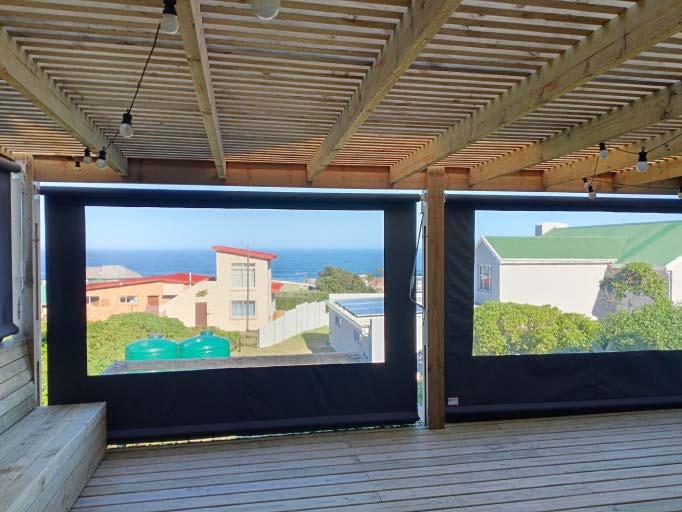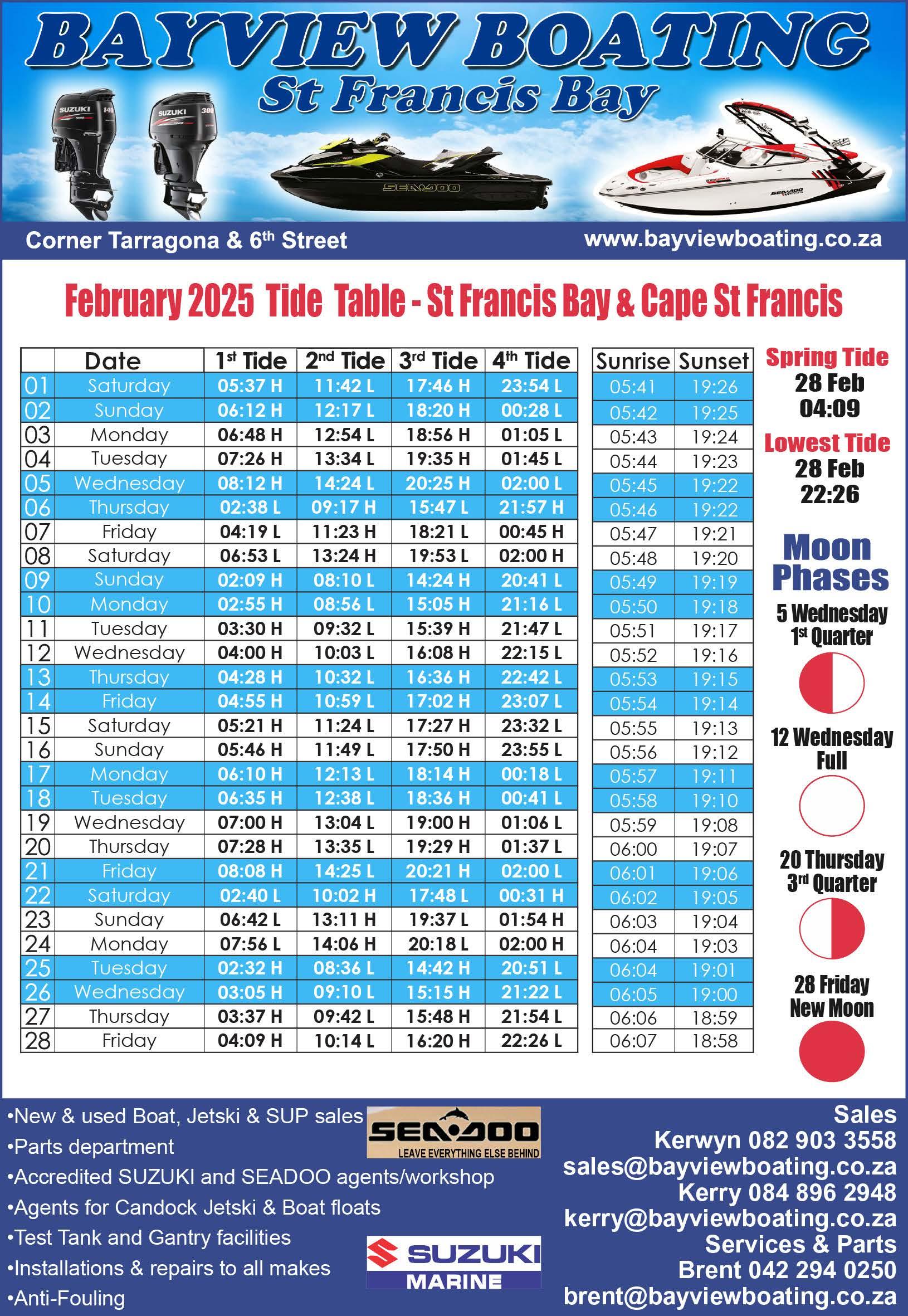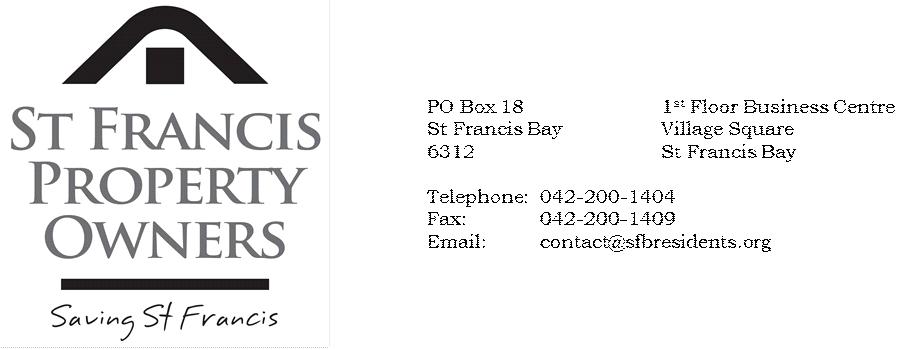Humansdorp
St
Reproduction or use in whole or in part of the contents of this magazine without written permission is prohibited. St Francis Info Ads makes every effort to ensure the accuracy of content published. Neither the publishers or advertisers will be held responsible for any errors found herein and the publisher accepts no liability for the accuracy of the statements made by advertisers in advertising and promotional materials.
Large selection of Fiction and Non-Fiction Books Young Readers Section
3 Assisi Drive (at the Municipal Building) Opening Times
9h30 – 12h00 14h00 - 16h00 9h30 – 12h00 14h00 – 16h00 10h00 – 12h00 Tuesday
FEBRUARY CODEWORD
Sudoku No. 649 - Easy
Sudoku No.650 - Medium
Sudoku No. 651 - Medium
Sudoku No. 652 - Hard
Unscramble the letters below to make a 10 letter word
Last months answer - TENACIOUSNESS M A R I D O A N I T
For you see, each day I love you more. Today more than yesterday and less then tomorrow.
Rosemonde Gerard
Maintenance & Repair Service Herstel en Onderhoudsdienste
Waterproofing
Painting & Varnishing
New Bathrooms and Tiling
Storm Damage Repair
High Pressure Cleaning
Chimney Cowls
Door Handles & Locks
Cupboard Shelves & Hinges
Curtain Tracks
Replace Light Bulbs & Fittings
Repair Plugs & Light Switches
Replace Leaking Tap Washers
Waterdigting
Verf & Vernis
Nuwe Badkamers en Teels
Herstel Windskade
Hoëdruk Skoonmaak
Skoorsteenhane
Deur Slotte
Kas Rakke en Skaniere
Gordynreelings
Vervang Gloeilampe en Ligte
Herstel Proppe en Ligskakelaars
Kraanwasters
INSTALLATION OF WATER TANKS AND PUMPS
JOIN THE ST FRANCIS PROPERTY OWNERS’ ASSOCIATION
• Municipal Liaison
• Land use and spatial development
• Aesthetics and Planning
• Community policing
• Beach reconstruction
• Riparian and Kromme River matters
• Critical issues
• Provision of information
• Environmental matters
• Disaster Management
• Serving St Francis Bay since 2008
2024-2025 Annual Membership for the Association are due for renewal on 1st October 2024. If you haven’t done so already, please consider supporting us by becoming a member or renewing your membership.
The annual subscription for a property owner/resident is R600, or R375 for a pensioner.
PAYMENT OPTIONS:
Visit the website and submit your payment online –https://www.stfrancispropertyowners.com/sfpo-association/association-membership/
Or make an EFT payment direct to the bank account : Francis Bay Residents Association Standard Bank, Humansdorp Code: 050015
Account No: 082499276
Please use your Erf number and surname as reference.
DIABETES?
Epilepsy is a chronic noncommunicable disease of the brain that affects around 50 million people worldwide. It is characterized by recurrent seizures, which are brief episodes of involuntary movement that may involve a part of the body (partial) or the entire body (generalized) and are sometimes accompanied by loss of consciousness and control of bowel or bladder function.
One seizure does not signify epilepsy (up to 10% of people worldwide have one seizure during their lifetime). Epilepsy is defined as having two or more unprovoked seizures. Epilepsy is one of the world’s oldest recognized conditions, with written records dating back to 4000 BCE. Fear, misunderstanding, discrimination and social stigma have surrounded epilepsy for centuries. This stigma continues in many countries today and can impact on the quality of life for people with the disease and their families.
SIGNS AND SYMPTOMS
Characteristics of seizures vary and depend on where in the brain the disturbance first starts, and how far it spreads. Temporary symptoms occur, such as loss of awareness or consciousness, and disturbances of movement, sensation (including vision, hearing and taste), mood, or other cognitive functions.
People with epilepsy tend to have more physical problems (such as fractures and bruising from injuries related to seizures), as well as higher rates of psychological conditions, including anxiety and depression. Similarly, the risk of premature death in people with epilepsy is up to three times higher than in the general population, with the highest rates of premature mortality found in low- and middle-income countries and in rural areas.
CAUSES
Epilepsy is not contagious. Although many underlying disease mechanisms can lead to epilepsy, the cause of the disease is still unknown in about 50% of cases globally. The causes of epilepsy are divided into the following categories: structural, genetic, infectious, metabolic, immune and unknown. Examples include:
• brain damage from prenatal or perinatal causes (e.g. a loss of oxygen or trauma during birth, low birth weight);
• congenital abnormalities or genetic conditions with associated brain malformations;
• a severe head injury;
• a stroke that restricts the amount of oxygen to the brain;
• an infection of the brain such as meningitis, encephalitis or neurocysticercosis,
• certain genetic syndromes; and
• a brain tumour.
TREATMENT
Seizures can be controlled. Up to 70% of people living with epilepsy could become seizure free with appropriate use of antiseizure medicines. Discontinuing antiseizure medicine can be considered after 2 years without seizures and should take into account relevant clinical, social and personal factors. A documented etiology of the seizure and an abnormal electroencephalography (EEG) pattern are the two most consistent predictors of seizure recurrence.




























































